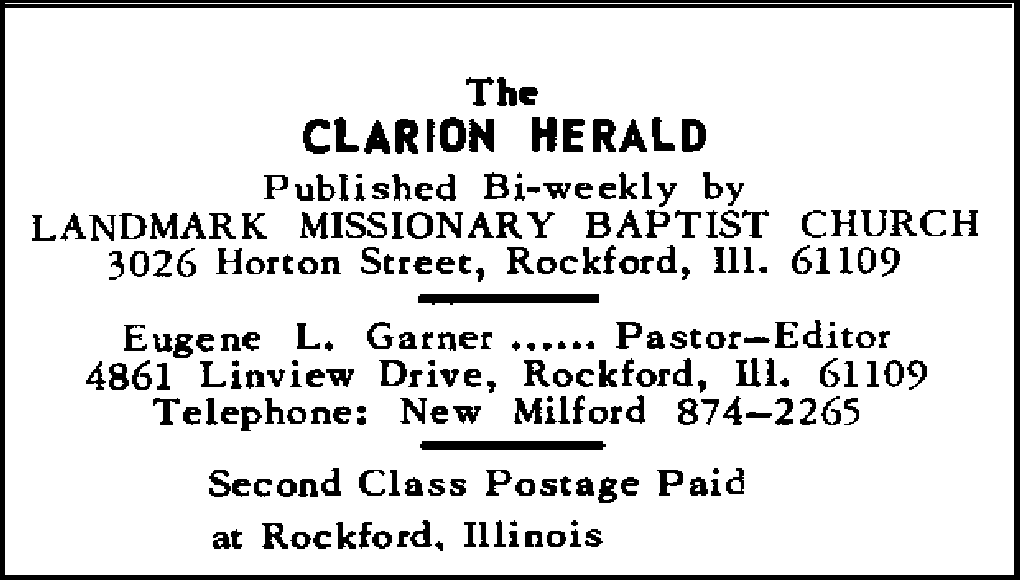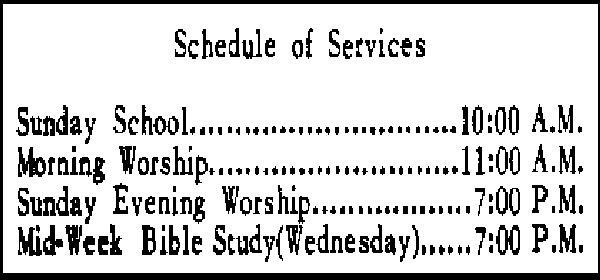
|
 |
 |
 |
|
 
|
|
|
"BUT I SAY ...... "
"Never man spoke like this man", (John 7:46). ".... the people were astonished at his doctrine: For he taught them as one having AUTHORITY, and not as the scribes, (Matt. 7:28-29).
Not only did Jesus Christ claim to speak authoritatively concerning the law of God; He also liberated its righteous principles from the bondage of legalistic encumbrances that had been imposed on it by the Pharisee-Scribe tradition. Theirs was NOT a religion of the heart; it was external. They were more concerned with ritual and ceremony than with a right attitude toward God and men.
Thus, our Lord, in His Sermon on the Mount, gave a true exposition of the righteous principles set forth in the law given, through Moses, on Mt. Sinai. It should be noted that Jesus does NOT set Himself in opposition to Moses and the law. Jesus does NOT reject, criticize or oppose the law itself; HE was the LAW-GIVER! He does NOT say: "Moses said BUT I SAY". No, He said: "Ye have heard that it was said by them of old time ... " (See Matthew 5:21, etc.)
With such a voice of authority
|
|
|
|
as utterly shocked the religiously elite of His day Jesus boldly rebuked that traditional handling of the law which had kept its true spirit and meaning hidden under an accumulation of legalistic devices that had been designed to vindicate the actions of its proud custodians.
In His exposition of the law Jesus showed that the "spirit" of the law, though embodied in the "letter", must rise above the "letter". More than outward action is required to fulfill the law; thoughts, motives, attitudes and desires are of vast importance. God constantly observes them. It is His desire that we should be lovers of righteousness; He wants to develop our character. And His commandments must never be regarded as an end within themselves.
However much one may strive to fulfill the letter of the law he will miss the mark unless, by divine power, he is being drawn closer to God -- unless he is learning to live for God's honor, glory and praise.
Men invariably subject the Word of God to such interpretations as fit their chosen philosophical systems. His "But I say" was not an argument with Moses, or with the
(Continued on page 4)
|
|
|
|
|
Page - 2
HE CAN DELIVER WHAT HE PROMISES
In view of the many prophecies concerning Israel's coming Messiah, it is not surprising that Jesus Christ spoke "as one that had authority" -- offering what was clearly beyond the ability of mere men. No scribe, priest, rabbi or prophet in Israel ever dared say: "Son, thy sins be forgiven thee". But Jesus did; and meant it! Nor was He surprised that many thought Him to be speaking blasphemously.
Following His resurrection, Jesus appeared to His disciples and announced: "Thus it is written, and thus it behooved Christ to suffer, and to rise from the dead on the third day: And that repentance and remission of sins should be preached in his name among all nations, beginning at Jerusalem. And ye shall be witnesses of these things" (Luke 24:46-48). It is significant that no little space is devoted to the subject of forgiveness and
|
|
|
|
remission of sins through the merits of Jesus Christ, in the subsequent writings of the New Testament.
Jesus not only forgave past sin; He also promised to give LIFE -- ETERNAL LIFE. He came that men might have life -- abundant life, imperishable life, a quality of life that can reach its fulness only in the coming kingdom of righteousness. Such as now forsake the binding ties and relationships of earth (for His sake and the gospel's) "shall receive an hundredfold now ... and in the age to come ETERNAL LIFE", (Mark 10:29-30). To as many as have been given Him of the Father He will give eternal life -- involving an intimate, experiential knowledge of both the Father and the Son, (John 17:3).
Further, an inheritance in the kingdom of God was promised, by Jesus, to such as would truly BE His disciples. And, as the Son of Man, He claimed authority to assign each one His proper sphere of inheritance therein. He clearly taught that such inheritance would be a "reward" (though unmerited), freely bestowed; it will manifest His approval of right attitudes and actions toward His faithful people. "Verily I say unto you, Inasmuch as ye have done it unto one of the least of these my brethren, ye have done it unto me", (Matt. 25:31-40).
Finally, John hears the anointed, ascended and enthroned Christ saying: "I will give unto him that is athirst of the fountain of the water of life freely. He that overcometh shall INHERIT ALL THINGS: and I will be his God, and he shall be my son", (Rev. 21:6-7). E.G.
|
|
|
|
|
CHRIST'S DESIGN FOR TRUE HUMILITY
In Matthew 7:1-12 Jesus Christ has set forth three basic principles designed to govern the lives of those who truly "seek first" His kingdom and righteousness. If one would be granted an abundant entrance into the Kingdom of God his life must be characterized by: (1) SELF-JUDGMENT, which leads to discipline of action; (2) PRAYER, which acknowledges one's own need of divine grace and becomes a channel through which he is enabled to judge righteously; and (3) KINDNESS in all one's dealings with others. Careful observation will recognize in this our Lord's own design for such humility as He may crown with exaltation and glory.
"JUDGE NOT, that ye be not judged" is perhaps the most widely-perverted and abused of all our Lord's commandments. It is important to know just WHAT HE MEANT by these words; nor is it necessary to find an answer outside the immediate context. That he did NOT herein forbid the exercise of ANY judgment -- relative to the character, action and moral worth of any individual -- is quite clear. He REQUIRES IT of His people -- even in this context, (vs. 6).
The word "judge" is from the Greek "krino" which means: "to discern, determine, discriminate, or rule". It is the very nature of men to make value-judgments. It is impossible for man to remain morally neutral in the struggle between good and evil. In attempting it one actually judges himself to be immoral -- consciously or
|
|
|
|
unconsciously. Jesus himself exercised such moral judgment while walking as a man among men. He designated the wily Herod a "female fox"; the scribes and Pharisees as "hypocrites".
What Jesus actually forbids is the pestilence of chronic, censorious criticism that constantly searches for skeletons to drag out of another's closet. The harsh, heady, hasty, careless, superficial judgment that is based on insufficient evidence is condemned by our Lord. He well knows the subtle deceptiveness of such judgments as are made to excuse one's own acting or failure to act in a certain way. Such judgments involve hypocrisy (play acting) and lead to severe judgment of one's self. Thus, the foundation laid by the Master for revealing the importance of the principles of self-judgment, prayer and kindness -- wherein true humility is manifested.
It is necessary that God's people learn to exercise "righteous judgment", (John 7:24; Acts 4:19; 16:15; I Cor.5:3, 12-13; 6:1-8; 10:15). But before we pass judgment on others we must first JUDGE OURSELVES, (I Cor. 11:31-32; Matt. 7:4-5; Luke 6:39-42; Josh. 7:12-13).
Such humility as God requires in this matter of judgment (of self or others) requires divine help; such help is offered to those who PRAY, (Matt. 7:7-11; Psa. 86:5; Lk. 18:1; John 15:7; 16:23-24; Jas. 1:5-6; I John 3:22; 5:14-15). Our Father really CARES! (Isa. 49:15; Rom. 8:32). He never refuses to hear the
(Continued on Page 4).
|
|
|
|
|
"BUT I SAY ..." Continued
law itself; it was against such unspiritual methods of interpretation as produced darkness rather than light and death instead of life. If He walked among men today we would doubtless hear His "But I SAY!" ringing out with clarion distinctness. He still condemns the subjection of righteous principles to partisan abuse for the attainment of personal, momentary gain.
---Eugene L. Garner
***************
A suspicious mind but scoffs at the motivating explanation it requires; a loving heart requires none, (1 Cor. 13:4-7).
|
|
|
|
CHRIST'S DESIGN ... Continued
prayers that ascend from humble hearts. Nor does He mock His children by offering deceptive substitutes; He answers in perfect wisdom and love. But we must be certain that the attitude of our hearts is right when we approach His gracious throne. It is NOT our right to demand His blessings on a course we have already charted without His counsel.
The final principle of humbleness mentioned by Jesus is that of KINDNESS in dealing with others, (Matt. 7:12; Lev. 19:l8; Rom. l3:8-10; Gal. 5:14; I Tim. 1:5). Nor does God give one set of principles for our secular lives and another for our spiritual. One who is proud, haughty, selfish, cantankerous and generally despicable in his everyday life (at home, school, or on the job) cannot manifest a true HUMILITY in the realm of the spirit -- however deceptively sanctimonious he may appear to others. Jesus knows the dangerous possibility of self-deception. He sees that our suspicions, and our impugning of others' motives, is actually rooted in what we know of ourselves.
Honest self-judgment is always humbling; it leads to such meekness as needs no defense. It makes one wonder that others can think as well of him as they do. 0, that this might be our experience! E.G.
***************
An intellect with a bias is an eye with a beam in it; the stubbornness of its tenacity is no safe evidence of its trustworthiness (And you may quote that if you like. EG)
|
|
|
|
|
 |
 |
 |
|




